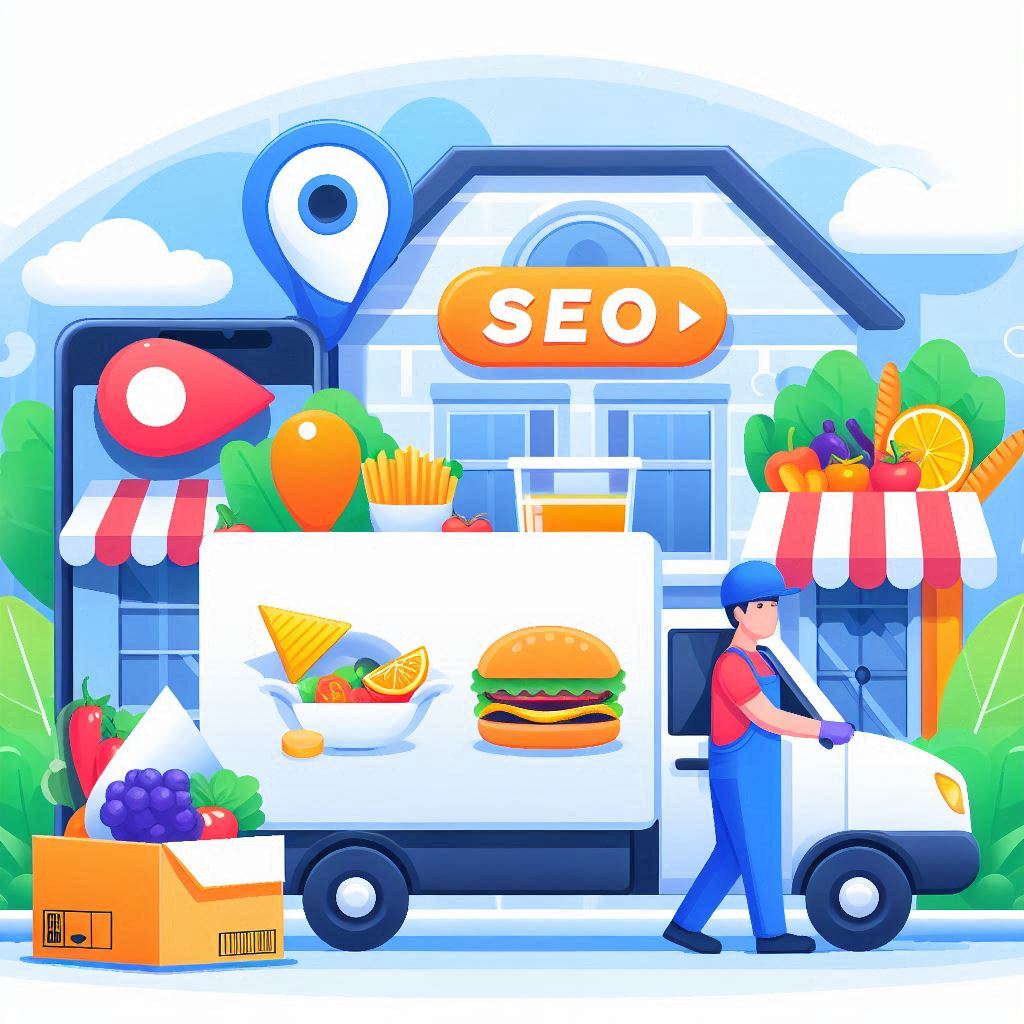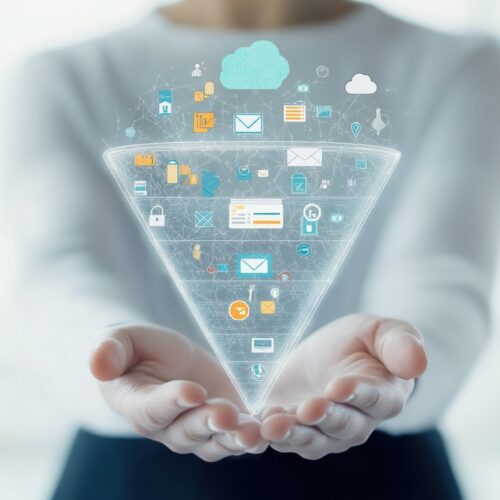It’s impossible to ignore the much-hyped arrival of artificial intelligence on the digital marketing scene – and no doubt even the most incurious of marketers will at least have dabbled with this tech in some form over the past year or so.
Yet this is one of the few instances in which the reality actually lives up to the claims made about the cutting-edge tech in question, and so implementing AI to augment promotional efforts is imperative.
To do this efficiently, you need a game plan. Here are a few options to consider and some ideas to pursue once you’ve mastered them.
Harnessing AIOps with Hybrid Cloud Observability for Smarter Digital Marketing
When we talk about integrating AI into digital marketing strategies, the focus is often on automated content or customer targeting. But there’s a powerhouse combination that deserves attention, and it comes in the form of AIOps with hybrid cloud observability.
This integration can dramatically streamline your marketing efforts by offering deep, smart insights and facilitating quicker, more effective decision-making. Here’s exactly how it works:
Real-Time Data Analysis
With AIOps integrated within hybrid cloud environments, marketers gain access to real-time analytics on how campaigns are performing across different platforms and geographies.
For instance, if you’re running a multichannel campaign for a new product launch, AIOps can provide instant data on which channels are performing best and why. This is significant given that a recent Gartner survey pinpointed performance measurement as the biggest issue for multichannel marketers.
Predictive Insights
Beyond reacting swiftly, this technology allows you to anticipate issues before they arise (like sudden drops in engagement or spikes in website traffic). The system analyzes past trends to forecast future outcomes, giving you a distinct advantage in planning and optimization.
Error Reduction
The precision of AI-driven analysis not only speeds up problem resolution but also significantly reduces human error. This means higher reliability in your digital marketing operations – crucial for maintaining brand integrity and consumer trust. And given that companies can see their value plummet by as much as 30% when trust is lost, this is not to be overlooked.
Cost Efficiency
By automating the monitoring processes and reducing downtimes through prompt troubleshooting facilitated by AI insights from hybrid clouds, companies can reduce operational costs related to manual oversight and error correction.
So, let’s say you’re a digital marketing agency that manages campaigns for various clients across different sectors. Implementing AIOps with hybrid cloud observability could allow the agency to easily pinpoint and resolve performance bottlenecks in real time, ensuring optimal campaign results consistently. This not only enhances client satisfaction but also streamlines the workload of marketers, who can now focus on strategy rather than firefighting issues.
Personalizing User Experiences with AI-Driven Content Creation
The ability to deliver content that resonates personally with each user can significantly amplify the effectiveness of digital marketing campaigns. AI excels in this area by analyzing vast amounts of data to tailor content specifically for individual preferences and behaviors.
Here’s how AI-driven personalization can redefine your digital marketing strategies:
Dynamic Content Customization
AI tools analyze user data such as browsing history, purchase patterns, and engagement metrics to create highly customized content offers.
For example, if an e-commerce store notices that a user frequently purchases books from a specific genre, AI can automatically suggest new releases in that category through targeted emails or on-site recommendations. Since 76% of consumers find it vexing when brands don’t personalize interactions in this way, it’s another must-do for even the smallest firms.
Automated A/B Testing
Traditionally, A/B testing can be labor-intensive and time-consuming. With AI, multiple variants of web pages or ads are tested simultaneously with real-time adjustments based on user reactions. This not only speeds up the process but also enhances the accuracy of finding the most effective version—with some marketers seeing a 20% boost to engagement with this method.
Behavioral Prediction Models
Leveraging predictive analytics means AI helps marketers anticipate future consumer behaviors based on past interactions within the digital space. This foresight allows brands to craft proactive strategies that engage users at just the right moment.
For instance, Netflix uses advanced algorithms to recommend movies and shows based on individual viewing habits – a practical implementation of personalized marketing that keeps users engaged and reduces churn.
Enhanced Email Marketing Strategies
Using machine learning models, marketers can optimize email marketing campaigns by predicting the best times to send emails, personalizing subject lines for increased open rates, and tailoring content to align with each recipient’s specific interests.
For example, Spotify sends out personalized playlists and music recommendations, enticing users to engage more frequently. With AI in hand, any business can achieve the same level of bespoke interactivity.
Real-Time Interaction Management
AI can manage thousands of interactions simultaneously, adjusting messages in real time based on user responses. This capability ensures that communications are always relevant and engaging.
For instance, a chatbot powered by AI on a retail site can offer personalized shopping advice as if it were a live sales assistant, helping to guide purchase decisions and enhance customer satisfaction.
Streamlining Social Media Management with AI Tools
Social media platforms are at the heart of digital marketing, acting as direct channels to engage with audiences. Leveraging AI in social media can automate mundane tasks and elevate strategic efforts. Here’s how incorporating AI can enhance your social media management:
Automated Content Scheduling
AI tools can determine the optimal times for posting based on when your audience is most active and engaged. This ensures that content reaches the maximum number of people possible.
For example, using a tool like Buffer or Hootsuite, integrated with AI capabilities, enables automatic scheduling tailored to your audience’s behavior patterns.
Sentiment Analysis
Through natural language processing (NLP), AI analyzes comments and mentions to gauge public sentiment around your brand or specific campaigns. This insight allows you to adjust strategies proactively rather than reactively. Brands like Amazon use sentiment analysis to monitor customer feedback on social media, helping them address issues quickly and efficiently.
Enhanced Customer Service
AI-driven chatbots on platforms like Facebook Messenger can handle a high volume of basic customer inquiries without human intervention, freeing up your team to tackle more complex issues.
A well-known example is Domino’s Pizza Bot, which handles orders directly through social media messaging apps. And since social media is one of several critical customer service channels, managing it efficiently must be prioritized – which is what AI delivers.
Targeted Advertising
AI algorithms improve ad targeting by analyzing data such as interests, demographic details, and past online behaviors. This results in higher conversion rates because ads are shown to users who are most likely to be interested in the product or service – moving away from the blanket approach of the past.
Final Thoughts
From its behind-the-scenes applications to its customer-facing benefits, the multifaceted and all-encompassing nature of AI can seem intimidating from the outside.
Hopefully, we’ve given you some ideas about how to adopt it for your own digital marketing strategies—the rest is up to you.







